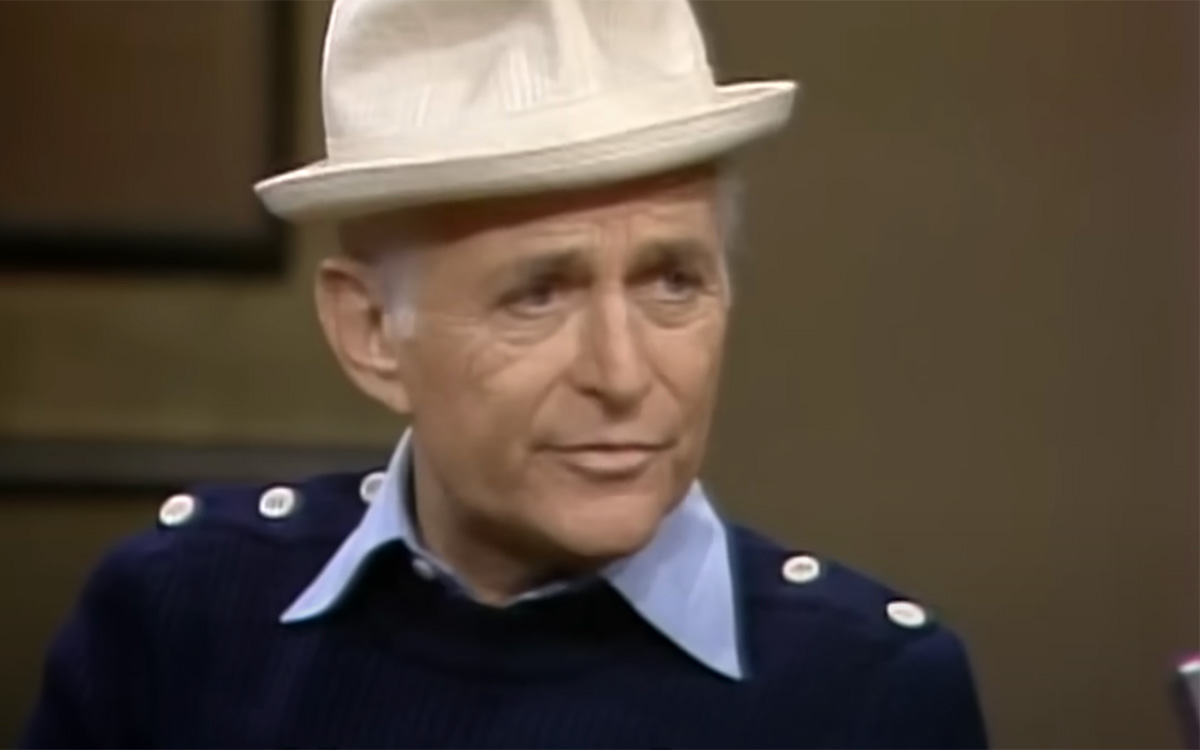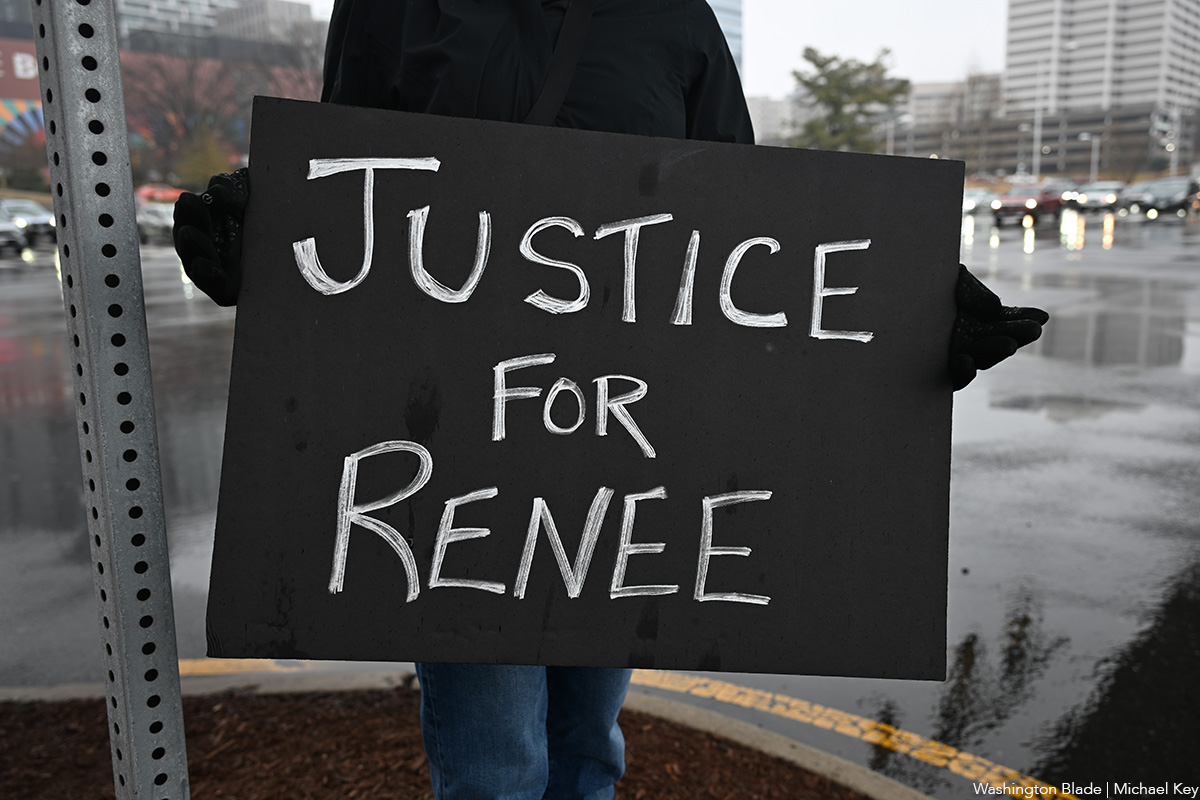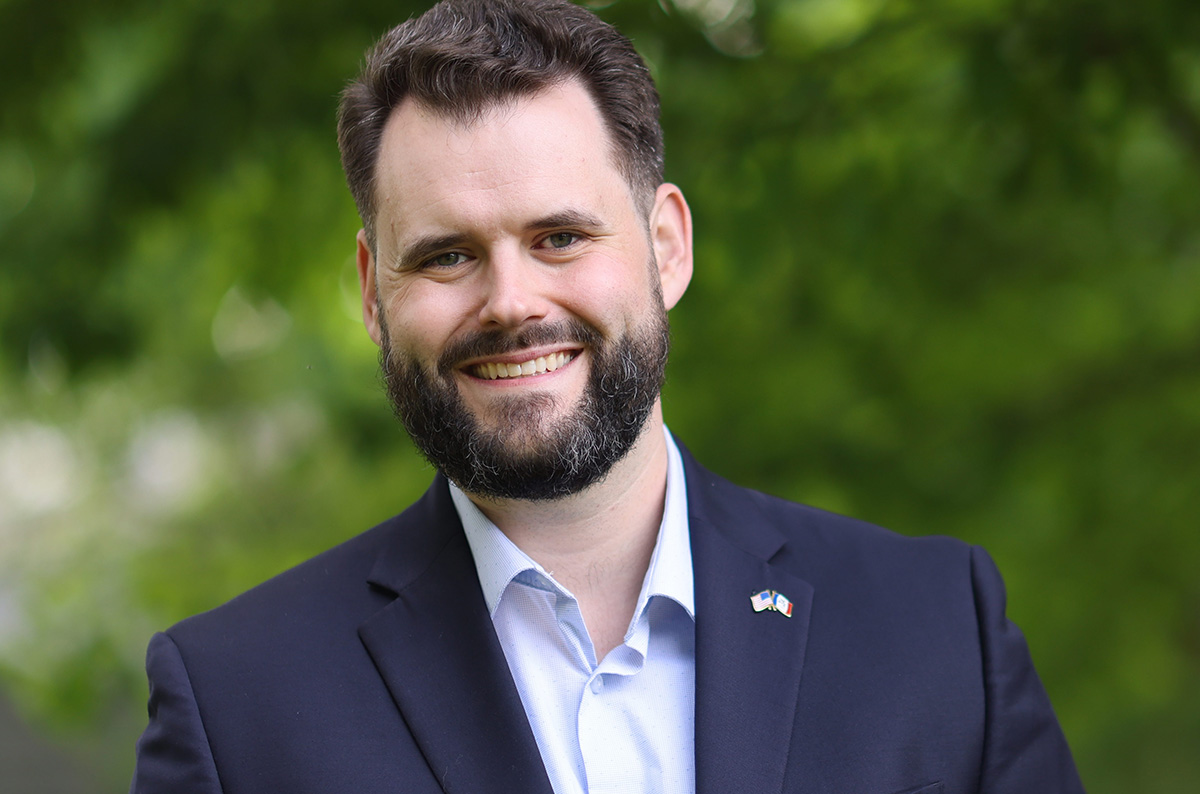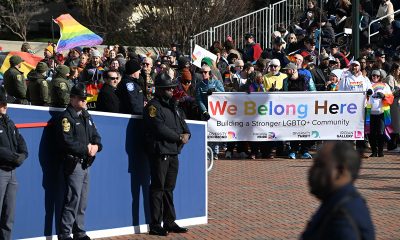Opinions
Norman Lear’s legacy resonates among queer viewers
Thank you for provoking, entertaining, and inspiring us

You know we all will die.
Yet, every so often, someone dies who you thought would live forever. Even if they lived for more than a century, and you felt like they knew your family, though you and your family never knew them.
That’s how I, along with so many others, felt when we heard that TV writer and producer Norman Lear, who transformed American media and culture, died at the age of 101 on Dec. 5 at his Los Angeles home.
Lear, who produced “All in the Family,” “The Jeffersons,” “Good Times,” “One Day at a Time” and other groundbreaking TV shows in the 1970s, never slowed down.
This was fortunate for the millions of viewers who were moved, provoked, surprised, and entertained by the many memorable characters he created from Archie Bunker to Maude to George Jefferson.
Lear’s TV series were especially meaningful to queer people.
Before Lear, families and characters in TV sitcoms were sometimes funny, gentle, unintentionally camp and/or delightful: from the Ricardos in “I Love Lucy” to June and Ward Cleaver in “Leave It to Beaver” to Paul Lynde in “Bewitched” to Rob and Laura in “The Dick Van Dyke Show.”
But the families and situations on these shows were sanitized. You never heard a toilet flush. Comedy was rarely used to address anything political or provocative. Characters didn’t talk about race, the Vietnam War, or the emerging second wave of the feminist movement.
You rarely saw queers on sitcoms. Certainly not in positive ways. LGBTQ folk are still not adequately represented in movies or TV.
The movie “Happiest Season” produced a frisson of delight and discomfort when it began streaming on Hulu in November 2020. I was thrilled to finally see a lesbian couple kiss and meet the parents in a holiday movie on a mainstream streaming service (that even had an homage to “It’s a Wonderful Life”). A relative told me that she was fine with “gay people,” but she didn’t like seeing them kiss in “Christmas movies on TV.”
Yet though there’s a long way to go, things are indescribably better now than they were when Lear’s pioneering series aired in the 1970s.
Then, 50 years before “Nyad,” “Rustin,” “Bros,” “Fire Island,” “Queer as Folk” and “Fellow Travelers,” nearly all of the queers you saw on screen were sick, dead, or in jail.
That didn’t do much for your self-esteem if you were LGBTQ. Being queer was illegal in many states. You could be fired from your job for being queer. And people would have wondered what planet you were on if you’d have said you were going to marry your same-sex lover. You were lucky if you could talk at all to your family about your sexuality.
In this landscape, Lear’s shows were often an oasis. His shows never pretended that being queer would be easy – that everything would be OK. But they did provide some hope that even bigots like Archie Bunker might come to see queers in a more human light.
To honor Lear, I watched “Cousin Liz,” just one of the episodes of his shows that positively depicted queer folk.
“Cousin Liz” was an episode of “All in the Family.”
As I watched, I remembered how freeing it was when I first saw the show in the 1970s.
In the episode, Edith’s cousin Liz has died. At her funeral, Edith and Archie learn that Liz was lesbian and meet Veronica, who was her lover. At first, Archie insists that Veronica give Liz’s tea set, which was an heirloom in Edith’s family, to him and Edith. When Veronica refuses, Archie threatens to out her at her job. Edith makes Archie see that this would hurt Veronica and that he wouldn’t be “that mean.” Archie, though reluctantly, and saying Veronica needs a man, lets Veronica keep the tea set.
This may not seem radical today. But in the 1970s, it was revolutionary. The idea that a lesbian lover could not only talk openly to a family member at a funeral but ask to keep a family heirloom was breathtaking.
In 1981, to combat the religious right, Lear founded the progressive advocacy group People for the American Way.
Peter Montgomery, who is gay and based in Washington, D.C., is research director for People for the American Way.
Lear “understood the threat of [the religious right’s] divisive rhetoric and authoritarian agenda earlier than most,” Montgomery emailed me.
Lear was wholeheartedly supportive of LGBTQ equality, he added. “Norman was thrilled when Dan and I got married in 2012,” Montgomery said, “and at his invitation we spent our honeymoon at his family’s lovely farm in New England.”
Thank you for provoking, entertaining, and inspiring us. Rest in peace, Norman Lear.
Kathi Wolfe, a poet and writer, is a regular Blade contributor. Wolfe is the winner of the 2024 William Meredith Award for Poetry. Her most recent collection is ‘The Porpoise In The Pink Alcove’ (Forest Woods Media Press).
Opinions
Do not forget that Renee Good was queer
Far-right media link shooting victim’s sexuality to her protest of ICE

Please do not forget that Renee Nicole Good was a queer woman.
Last week, Good, a 37-year-old American citizen, was shot and killed by a United States Immigration and Customs Enforcement agent in Minneapolis. Her wife Rebecca Good was present when the ICE agent shot her, standing outside their car. In the immediate aftermath, Minneapolis erupted with protests aimed at ICE in the city and Republican officials, including President Donald Trump and Vice President JD Vance, who argued the shooting was justified as an act of self-defense.
In a press conference held this past Thursday, Vance told reporters that Good was “a victim of left-wing ideology.” “I can believe that her death is a tragedy,” Vance said,” while also recognizing that it is a tragedy of her own making.” Many criticized Vance’s statement, especially given how he blamed “left-wing extremism” for Charlie Kirk’s death in September on a Utah campus and Vance himself doubled down on condemning those who were celebrating the far-right podcaster’s fatal shooting.
Department of Homeland Security Secretary Kristi Noem implied that Good was a domestic terrorist while Fox News host Jesse Watters said that “the woman who lost her life was a self-proclaimed poet from Colorado with pronouns in her bio.”
Laura Loomer, another far-right Trump supporter, tweeted, “‘She/her.’ Literally every time,” in response to what is believed to be Good’s Instagram account. Loomer and Watters both pointed out her pronouns are somehow part of the reason she was tied to ICE-related violence.
As these comments from far right pundits show, far-right media coverage was quick to connect Good’s queerness to her work to inhibit ICE activity in Minneapolis.
But while far-right news outlets highlighting Good’s queerness, centrist and even leftist news outlets also erased her wife’s experience, featuring interviews with Good’s mom and ex-husband but not her wife who was present for the shooting, feeding into the narrative that she was an “innocent” white mother while denying Good’s own agency in mobilizing for immigrants in her community.
Nobody should be shot by government agencies ever, and these news outlets do not need to play into the construction of an “innocent” white woman for people to be outraged by her death. In fact, in doing so and denying Good’s queerness, they deny the way in which Good’s identity likely affected the way she interacted with the police. For queer and trans people, police are not safe people–in fact, Good’s last words deescalating the situation reflect the ways that homophobia and misogyny prime queer women, and all women to placate men’s emotions.
And it still didn’t work. After shooting her, the ICE agent called her a “fucking bitch,” in front of her wife who was kept away from Good while she bled out in her car.
When the media reinforces the narrative that she was an “innocent” mother, it reinforces the same sexism and racism that allows police brutality to continue.
In an interview, author of the book After Purity released this past December, Sara Moslener said that “White womanhood has been constructed to require that white women sort of maintain purity within themselves as a way to maintain the purity within themselves as a way to maintain the purity of, the innocence of, the nation state. When the purity movement resurfaced in the 1990s, it was this recapitulation of the 19th century nation of sexual purity that was highly racialized.”
“It wasn’t something that was accessible to enslaved women, to other women of color, to immigrant women. It was this ideal of true womanhood that became connected to this idea of a strong nationstate. That rhetoric was then used to justify racial terror lynchings. If white women were threatened, you know, physically, bodily, culturally, they have the right to claim things. This was often used as a guise to justify violence and murder, especially against Black men. It even ties to the concept of Karen and the entitlement of white women, where they can weaponize their vulnerability,” Moslener said.
Good’s shooting for many people was a breaking point for this very reason — because it represented the first time that they had witnessed a white person killed by an ICE agent or a member of the police.
For some, their whiteness had been a source of safety because of the privilege of their skin color, or so they thought until Good’s murder this past week. In the aftermath, they are rethinking if this privilege will continue to protect them and what it can mean in a world where violence against white women’s bodies has long caused social backlash.
This is not a reason to stop fighting — Good was not the first person killed by ICE, not even the first person killed by ICE in 2026, but her whiteness is one of the central reasons that it incited outrage — because of a society that privileges and protects white women’s bodies. To describe Good as solely an “innocent” white woman, to deny her queerness, is to play into this performance of outrage about the brutalization of white women’s bodies.
If discussions of Good’s queerness — and persistent queerphobia against queer women — is not considered in our outrage, in our protests, we feed right into the same narratives that mean some police brutality, especially that against queer and trans people and people of color, goes completely unreported and unchallenged.
This is state-sanctioned violence, and in the immediate aftermath of Good’s death, the Trump administration has demanded that people deny the evidence of their eyes and ears, has pushed the narrative that Good weaponized her vehicle against an ICE agent and that agent fatally shooting her was an act of self defense. This is categorically false but denying what we know to be true, what we can witness ourselves and understand, is the final step in fascism armed and funded by the government.
But let’s be frank: This is not the first time that the American police or a government agent has murdered an unarmed person. Just under six years ago, George Floyd was murdered by police officers in the same city — his death was a breaking point for many who had witnessed police brutality against people of color.
While people are eager to say Good’s name, we cannot say or remember her without remembering and saying the names of Black and Brown men and women, especially disabled people of color, who have been murdered in the hundreds by the police. Their names are often said, their murders often go unquestioned.
People have been and will continue to say Good’s name largely because she was a white woman but the names of Black and Brown people go unsaid and unrecognized because of a system that performs outrage about violence against white bodies. What Good’s murder realized was how a system built on the protection of white women — a Christian nationalism committed to Social Purity — will still sacrifice white women who refuse to fall in line.
Six federal prosecutors in Minnesota resigned this week over the Justice Department’s push to investigate Good’s widow. Among them was Joseph Thompson, a career federal prosecutor, who objected to investigating Good’s wife as well as the department’s refusal to investigate whether the shooting was lawful.
In the signs, in the protests, in the prayers and pleas that you say and make in the aftermath of Good’s murder, do not deny her queerness, do not deny who she was and do not deny the work she did because in performing outrage against the murder of an “innocent” white mother we replicate the same systems of harm that hurt us all.
Emma Cieslik is a museum worker and public historian.
Letter-to-the-Editor
D.C. electoral bumper car season is in full swing
More than a dozen candidates running for incumbent Eleanor Holmes Norton’s seat

The District of Columbia has entered into a challenging time not seen since Dr. Martin Luther King was murdered, the city burned and rioted and risked home rule being taken away. While statehood has twice passed the U.S. House of Representatives, the dream of being the 51st star on the American flag stagnates, to say the least.
Currently according to Politics 1.com, there are already 14 Democrats including two sitting members of the City Council (At-Large Robert White and Ward 2’s Brooke Pinto) and one Republican who have declared their candidacy to become the new voice in Congress. Unfortunately Congresswoman Eleanor Holmes Norton has refused to either announce her intentions to run for re-election again or gracefully acknowledge her time is over and she is ready to hand over the reins to continue the battles inflicted upon our home city. Congressional representation by press releases has simply got to stop as soon as possible!
Rank choice voting is going to be implemented in this 2026 cycle despite efforts to overturn or delay its implementation. Regardless of your thoughts on the new system, this will be one very interesting contest year to say the least. Rank choice … ready or not … here it comes!
Needless to say, the race for the Congressional seat is not the only major contest. Let us not forget the other positions up for election: the mayor, the attorney general, the chairman of the City Council, several ward and at-large races for the council. Add all these up and you will be looking at more moves on the political chess board than seen in the first Harry Potter film with the same results too. (As an aside, while the District of Columbia has no elected senators, it should be pointed out that any elected House member AND the District mayor have Senate floor privileges when in session.)
Before the June primary, it would be wise to make sure your voting registration is still current at the D.C. Board of Elections. Also, please urge friends not registered to do so as soon as possible. May we have the strength and will power to take back our city and stand up to those who want to destroy it.
Opinions
Zach Wahls stood up for us, now let’s stand with him
Young Iowa Democrat running for U.S. Senate

It was 15 years ago, on Jan. 30, 2011, that a college student, Zach Wahls, bravely stood in front of the Iowa Legislature, and spoke out, defending the marriage rights of his two moms. On Jan. 28 we will celebrate the 15th anniversary of that speech. That was the first time I, and millions of others, heard of Zach Wahls. I know Zach had no idea that speech would propel him to national prominence. It went viral, and Zach was invited to appear on the Ellen DeGeneres show, among other appearances.
At the time, he was an engineering student at the University of Iowa. As he has said, when he prepared his notes over the weekend for his Monday speech to the legislature, he had no idea where this would lead him. Today, so many of us, not just his moms, have the chance to repay him for what he did that day, when he defended all our rights in Iowa. In the past 15 years, Zach has never stopped standing up for the rights of his moms, and for all of us in the LGBTQ community.
I first met Zach at an event in Washington, D.C., when he was leading the fight to allow gay men to be leaders in the Boy Scouts of America. Having been a Boy Scout myself, and an Explorer adviser, and having promoted scouting for the handicapped (the term we used back in those days) this was an important fight for me. I was both honored to meet Zach, and have the chance to join him in that fight. Since then, I have followed his career. First as he went to Princeton for his graduate degree, and then back to Iowa, he is a sixth generation Iowan, to run for, and win, a seat in the Iowa State Senate. He was then elected to the post of minority leader. Today, Zach is running to become the United States Senator from Iowa. Zach is a member of the younger generation so many of us want to see serving in Congress.
As soon as I heard Zach was running, I endorsed him. Many of you may have read my endorsement column in the Blade. He was recently in Washington, D.C. for a fundraiser held at the Women’s National Democratic Club, where I had the pleasure of meeting his wife, and his absolutely adorable son. I kidded him he should never go campaigning without them. Now, it’s important to remember, he is running in Iowa. Not an easy race to win. He has a primary to win, which I firmly believe he will, and then his likely opponent is the ultra MAGA Republican Congresswoman Ashley Hinson (R-Iowa). A poll done just before Sen. Joni Ernst (R-Iowa) said she would not run again, had Zach leading her. That may have been part of the reason she dropped out. If you followed Zach’s career in Iowa, you understand why Iowans would vote for him. If you haven’t, take a look at his website, to get an idea of where Zach stands on the issues, and the things he has been doing to fight for all Iowans. His proposed federal legislation, Keep the Promise Act, would strengthen Social Security. Zach understands we need to defeat the fascists working with the felon in the White House, before they totally destroy our country. He understands we need to fight for affordable healthcare for all, for his constituents in rural Iowa, who are getting hit the hardest by the felon’s policies. Iowa farmers are losing their farms because of the felon’s policies. While continuing to fight for the LGBTQ community, Zach has always understood, we are part of the broader community he is now fighting for.
I hope those of you who read this column, will join with me, support Zach, and be part of the Zoom call on Wednesday, Jan. 28, to celebrate the 15th anniversary of Zach’s speech to the Iowa Legislature. To join, click on this link, and sign up. I also ask you to share this link with everyone you know. Our community owes something to Zach, but everyone will benefit, if Zach Wahls ends up in the United States Senate. He will make us all proud.
Peter Rosenstein is a longtime LGBTQ rights and Democratic Party activist.
-

 Iran4 days ago
Iran4 days agoGrenell: ‘Real hope’ for gay rights in Iran as result of nationwide protests
-

 Virginia4 days ago
Virginia4 days agoMark Levine loses race to succeed Adam Ebbin in ‘firehouse’ Democratic primary
-

 U.S. Supreme Court5 days ago
U.S. Supreme Court5 days agoCompeting rallies draw hundreds to Supreme Court
-

 Congress4 days ago
Congress4 days agoVan Hollen speaks at ‘ICE Out for Good’ protest in D.C.



















